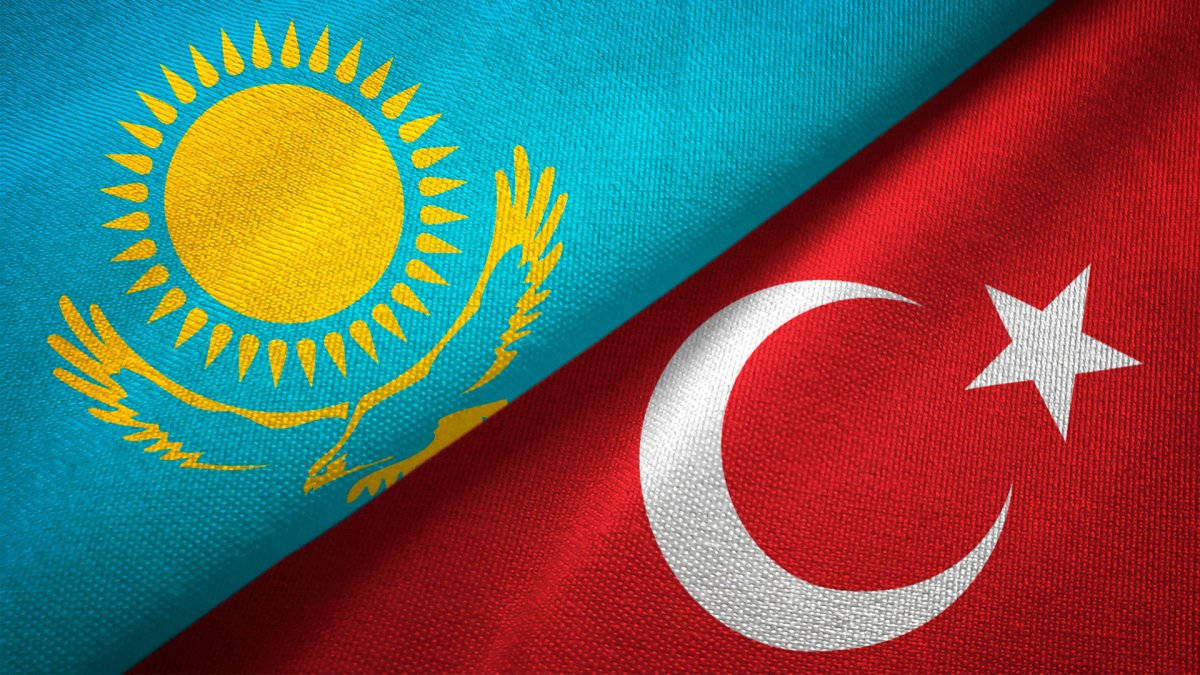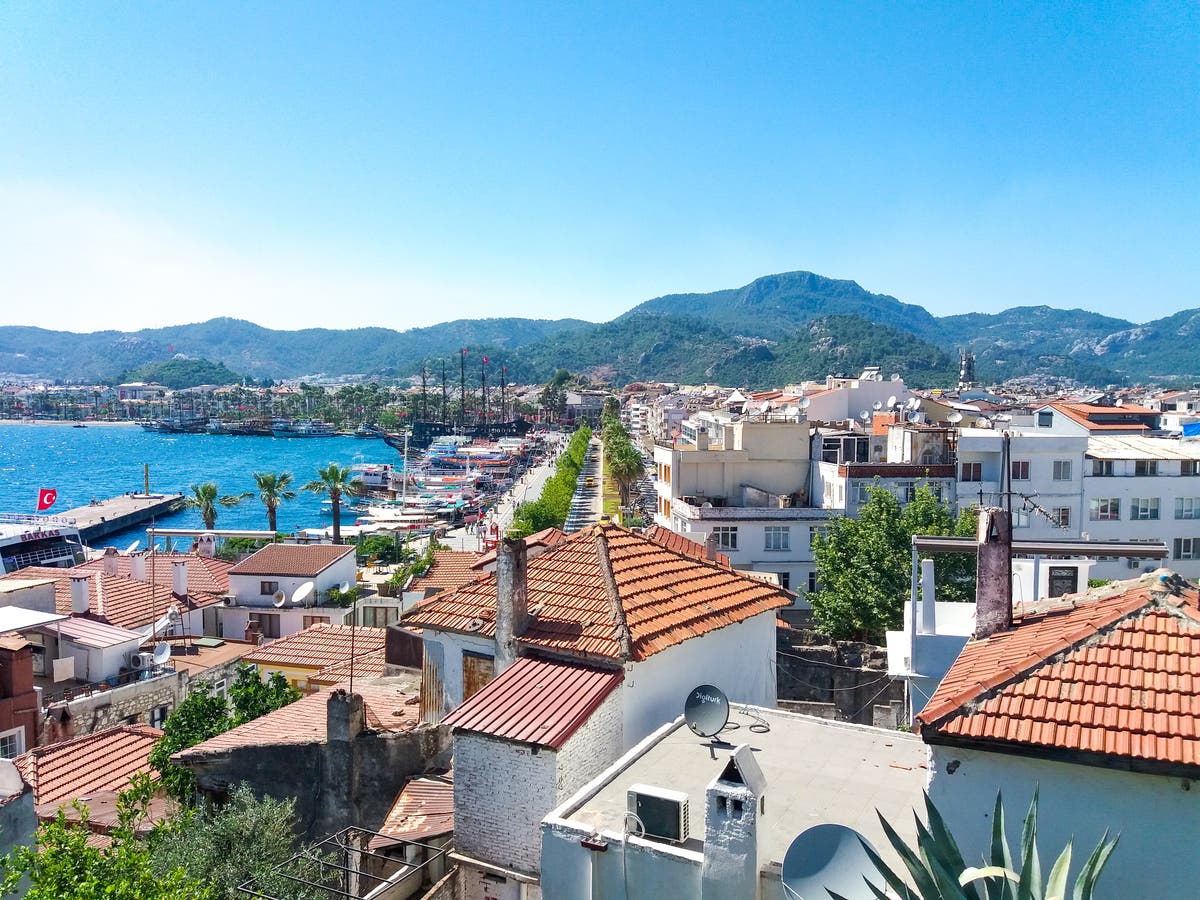Kazakhstan, Türkiye to Deepen Strategic Ties at High-Level Council Meeting in Ankara – The Astana Times
ASTANA – President Kassym-Jomart Tokayev will pay an official visit to Türkiye on July 29, during which he is scheduled to hold high-level talks with President Recep Erdoğan aimed at strengthening the strategic partnership between the two countries. The two leaders are expected to co-chair the fifth meeting of the High-Level Strategic Cooperation Council.

Photo credit: ortcom.kz
The visit will focus on political, economic, cultural, and defense ties between the two countries, as well as key regional initiatives.
Deep political dialogue
Kazakhstan and Türkiye have long-standing bilateral relations rooted in shared history and cultural ties. Türkiye was the first country to recognize Kazakhstan’s independence on Dec. 16, 1991. Diplomatic relations were formally established on March 2, 1992, with Kazakhstan opening its embassy in Ankara later that year.
Kazakhstan currently operates Consulates General in Istanbul and Antalya, along with Honorary Consulates in several Turkish cities. Türkiye has Consulates General in Almaty, Aktau and Turkistan, as well as an Honorary Consulate in Shymkent.
Since independence, Kazakh presidents have made more than 20 visits to Türkiye. Tokayev has met Erdoğan 14 times since 2019, most recently at the Organization of Turkic States (OTS) summit in Budapest on May 21.
The countries maintain regular parliamentary and intergovernmental cooperation, primarily through the Parliamentary Assembly of Turkic States (TurkPA). The legal foundation for bilateral ties includes a 2009 Strategic Partnership Agreement and the establishment of the High-Level Strategic Cooperation Council in 2012. In 2022, both sides issued a Joint Statement on Enhanced Strategic Partnership.
Aliya Musabekova, a senior expert at the Kazakhstan Institute for Strategic Studies, said the OTS, launched at Kazakhstan’s initiative, has been a driving force in strengthening Kazakh-Turkish relations.
“Türkiye is one of Kazakhstan’s key foreign policy partners. We share cultural, historical, and strategic commonalities and have established ourselves as key players within the Turkic world,” said Musabekova in an interview with Kazinform.
Trade and investment
Türkiye is one of Kazakhstan’s top five trading partners and among its largest foreign investors. Both countries aim to raise bilateral trade to $10 billion. Despite regional and global headwinds, trade between the two nations reached nearly $5 billion in 2024.
According to the Kazakh Ministry of Trade and Integration, trade between Kazakhstan and Türkiye totaled $1.9 billion from January to May 2025.
Kazakhstan’s key exports to Türkiye included copper and cathodes worth $622.5 million, followed by crude oil at $469.3 million. Other major exports were refined petroleum products totaling $78.4 million, polypropylene polymers at $34.5 million, dried vegetables at $21.2 million, coal at $19.7 million, and unprocessed aluminum at $9.9 million.
Imports from Türkiye include pharmaceuticals, textiles, carpets, construction materials, and household goods.
To support growing trade, both sides are exploring alternative logistics routes. Türkiye has committed $100 million to building logistics terminals in Kazakhstan. In the event of disruptions in the Strait of Hormuz, the countries plan to activate the Trans-Caspian International Transport Route fully.
Musabekova said Kazakhstan should use the partnership to diversify its exports and strengthen industrial ties. She noted that in 2024, Kazakhstan exported $3.3 billion in goods to Türkiye and imported $1.7 billion.
“To reach the $10 billion target, Kazakhstan must diversify its exports beyond raw materials and agricultural products. Engaging Turkish partners in industrial equipment could be one solution,” she said.
Kazakhstan has significantly increased its investment in Türkiye, reaching $610 million in the first four months of 2025 — the highest annual amount on record. In contrast, Kazakhstan’s direct investment in Türkiye totaled just $8 million in 2023.
From 2005 to 2024, Türkiye invested $5.2 billion in Kazakhstan. Currently, 3,538 Turkish companies operate in Kazakhstan, with 78 joint projects worth over $3 billion completed and 39 others underway.
Tourism and education bolstering ties
Tourism and educational exchange are also growing pillars of the bilateral relationship. In 2024, more than 863,000 Kazakh citizens visited Türkiye, a 4.5% increase from 2023. Meanwhile, 130,000 Turkish tourists visited Kazakhstan, making Türkiye the country’s third-largest source of international visitors.
To further support tourism growth, Kazakhstan is considering extending visa-free stays for Turkish citizens to 90 days.
Over 12,000 Kazakh students are currently studying in Türkiye, many of them on Bolashak or Türkiye Bursları scholarships. For the 2024–25 academic year, 300 Kazakh students received Türkiye Bursları grants.
What’s on the Council Agenda?
The High-Level Strategic Cooperation Council, established in 2012, serves as the central mechanism for high-level bilateral decisions. At its fourth meeting in 2022, Kazakhstan and Türkiye reached agreements on foreign policy, investment, energy, logistics, and defense.
This year’s fifth session in Ankara is expected to cover an even broader range of topics. Key agenda items include the Middle Corridor, modernization of the defense industry, media cooperation, and cultural initiatives.
During a recent summit in Baku, Erdoğan announced that the Ankara session would include new agreements in agriculture, defense, energy, logistics, and culture. He reaffirmed Türkiye’s ambition to increase bilateral trade to $15 billion.
Expanding defense cooperation
Security and defense cooperation are expected to be key areas of focus/. Talks may include military training, defense education, joint production, cybersecurity and counterterrorism collaboration.
Musabekova noted that military cooperation between the two states is growing. In 2025 alone, the countries have held joint training sessions, medical exchanges, peacekeeping activities, and defense exercises. A defense cooperation plan is in place, including joint development of unmanned aerial vehicles.
“Military and political cooperation is a promising area. Cybersecurity and counterterrorism are emerging priorities. This Council session could mark a turning point in the defense relationship,” she said.
The article was originally published in Kazinform



